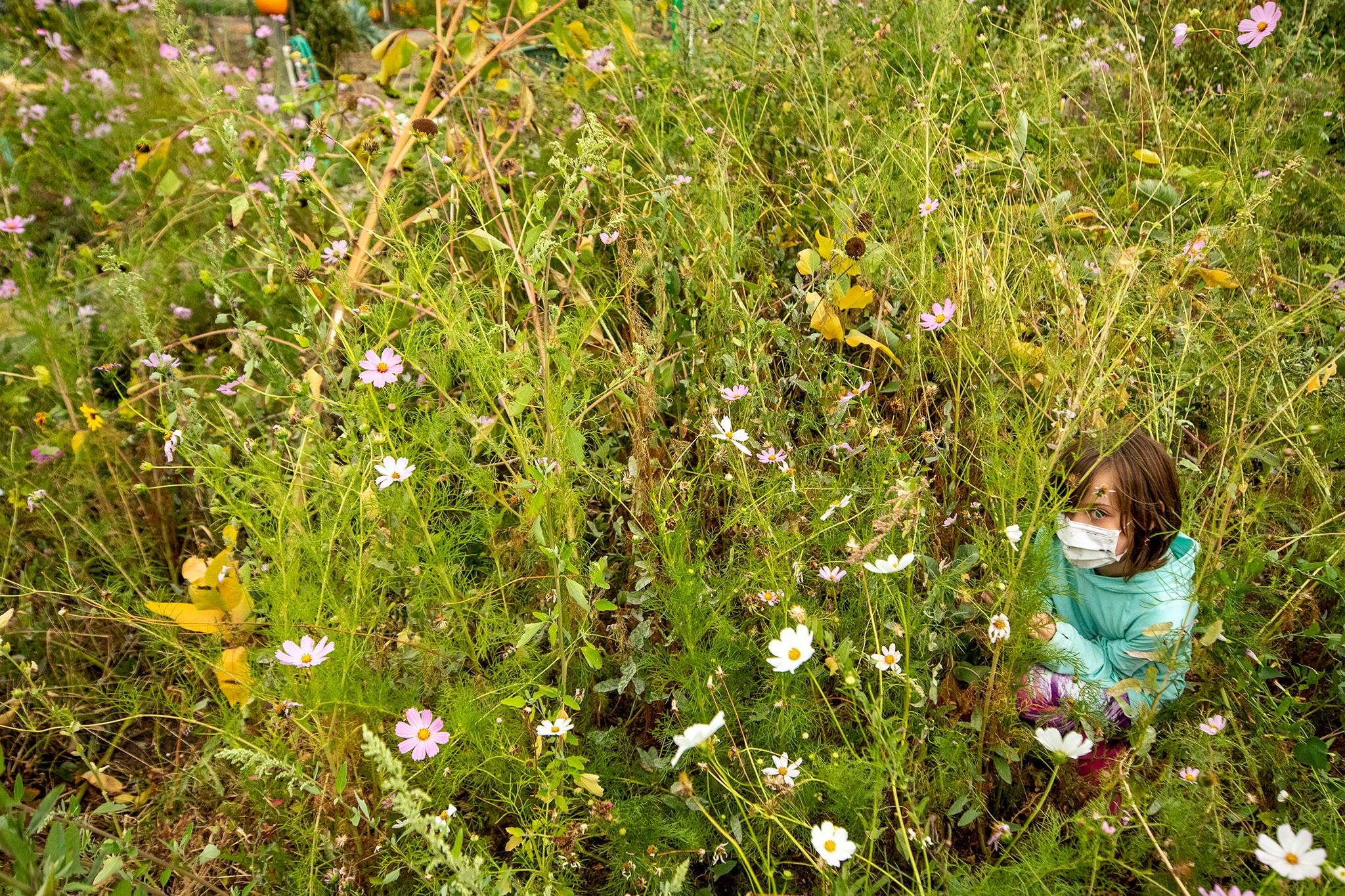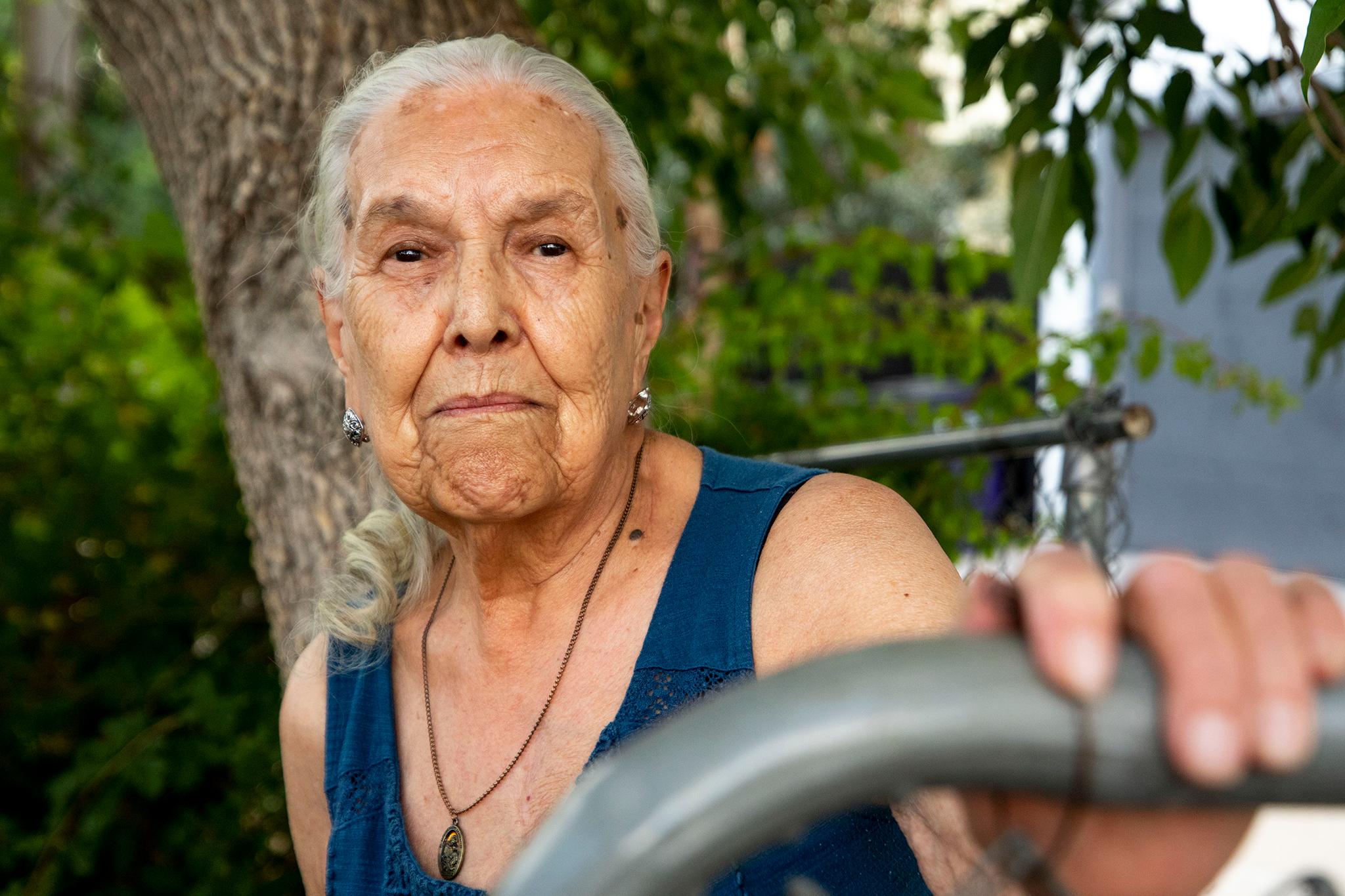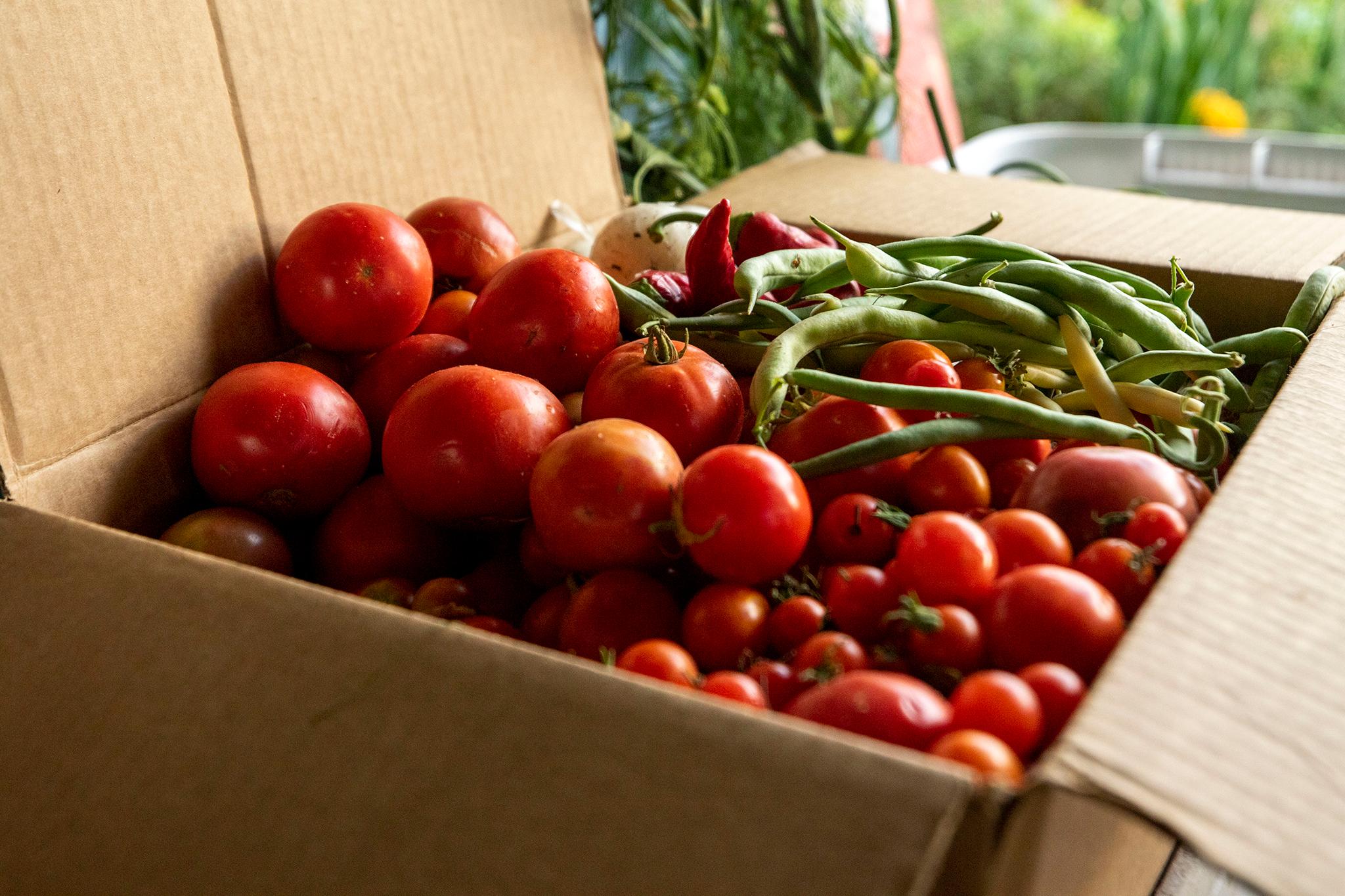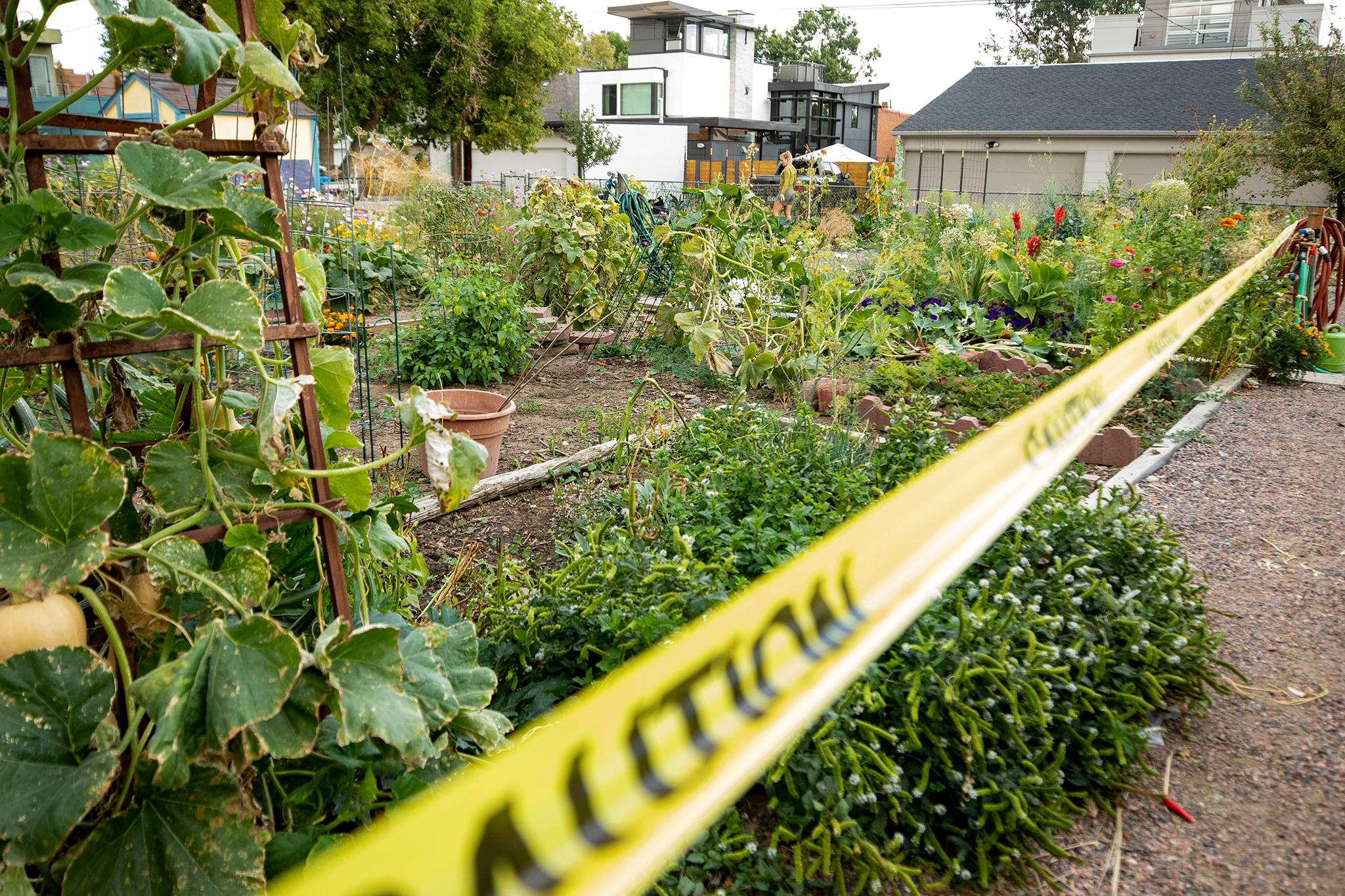Updates with new director of Denver Urban Gardens resigning.
The sculptor has watched his daughter grow from each planting to each harvest. The food pantry manager knows neighbors in need welcome the fresh heirloom tomatoes. The real estate broker has taken on extra duties to ensure El Oasis Community Garden keeps growing.
But now, El Oasis is shrinking significantly. Denver Urban Gardens, which bought the plot at 1847 West 35th Ave. in Highland from a benefactor for $1 in 1988 and has managed it as part of a metro network, is under contract to sell two-thirds of it to a developer for $1.2 million. The money will help the food access nonprofit pay off debt and build a foundation for future financial security, said Ramonna Robinson, a public relations executive who has been on the Denver Urban Gardens board since 2016 and served as board president since 2018.
Robinson said that with donations and grants failing to keep up with expenses, Denver Urban Gardens has built up a debt of $500,000. Attempts to raise funds to pay down the debt in 2018 and 2019 failed. Then came 2020's pandemic, bringing a nationwide economic slowdown along with social distancing rules that have led many nonprofits to cancel traditional fundraisers such as banquets and galas.

Denver Urban Gardens saw selling an asset as a way to protect the larger organization that serves 17,500 gardeners, some of whom depend on what they harvest to feed their families. The nonprofit owns only three of the more than 180 gardens it manages. El Oasis's size and its residential zoning status made it the best candidate for a sale, Robinson said. El Oasis was appraised in April and Denver Urban Gardens started spreading word among its network and receiving offers. Robinson said the $1.2 million offer from a homebuilder who plans to put duplexes at the front of the lot was close to the appraised value. The deal will allow community gardening to continue on part of the plot, which is about half the size of a football field.
The gardeners of El Oasis heard nothing of Denver Urban Gardens's financial troubles until Sep. 9, when they were informed of the sale during a video conference call.
Trini Zamudio wasn't on the call. At 92, Zamudio no longer tends a plot in the garden where she started growing vegetables before Denver Urban Gardens bought it. Back then it was just an abandoned lot. Zamudio keeps tabs on the garden, which is just across the alley from the back gate of the house where she and her husband have lived for 53 years. She enjoys listening to parents showing children how to grow food and seeing people gather at picnic tables in the garden for breakfast.
"You can hear the laughter," she said.

Her neighbors bring Zamudio zucchini, cucumbers and flowers. They also brought her news of the sale.
"My whole family is just mad," said Zamudio, who has eight children, 20 grandchildren and 27 great-grandchildren.
Denver Urban Gardens "didn't bother to let us know what was the problem and what was going on," she said. "We are hurting."
Mike Brohman, a sculptor and fine arts professor at the University of Colorado Denver, his husband Jim Rodriguez, a real estate agent, and their daughter Cricket Rodriguez work a plot where Zamudio once gardened.
"We've been here eight years," Brohman said. "And Cricket's seven, so she's been here her entire life."
Brohman said that if Denver Urban Gardens had come to its gardeners at El Oasis, they might have come up with another way to raise funds.
"We're professionals. We're creative. We love gardening. We could have brought something, a solution to the table that would have prevented this," Brohman said. "They're looking at this as a primarily economic issue and not how it's affecting the neighborhood."
Robinson, the Denver Urban Gardens board president, said the board felt action had to be taken this year, leaving little time for a community discussion. She said the level of fundraising required was not something her organization has been able to muster in the past.
Greg Pratt is executive director of the Bienvenidos Food Bank at 3810 North Pecos Street, a 10-minute walk from El Oasis.
El Oasis gardeners are "a part of the community," Pratt said. "They're more than just a garden for those who are there. They're a garden for the community."
For several years during harvest season, Pratt has been able to count on weekly deliveries of boxes from El Oasis. It can be hard to get the fresh produce his clients crave, Pratt said, saying he buys vegetables and fruits to supplement what he gets from El Oasis. But supermarket tomatoes, he said, are "more pale, less tasty" than the heirlooms he gets from El Oasis.

"Two-thirds -- that's a big chunk," Pratt said, referring to the amount of El Oasis being sold.
Robinson, the Denver Urban Gardens board president, said her organization has sketched out a layout for about 30 plots for what will remain of El Oasis. The garden now has 43 plots, many of them larger than a typical Denver Urban Gardens plot.
Ted Richardson has been gardening at El Oasis for 12 years. For the last five or six years, he's been a lead gardener, taking on tasks such as ordering compost and getting food to Bienvenidos. Now, Richardson expects it will fall to him to help decide how to redistribute plots. It is not a task he relishes.
Gardeners have been lobbying against the sale. It is unclear whether it can be derailed. Robinson, the board president, said that without the sale, Denver Urban Gardens might not survive.
Richardson said, "We don't want to bury Denver Urban Gardens. We want to see Denver Urban Gardens keep working. But they need to change something."
Robinson said her organization is looking at how it can improve fundraising, including trying to be less reliant on a few government grants and working to get corporate and individual dollars. It might be able to earn more income with sales of seeds and tools and fees for classes, she added.
In January, Robinson's board named a new executive director, Violeta Garcia. In an Oct. 1 statement, Denver Urban Gardens said Garcia had resigned. The statement did not give a reason. The organization's board of directors, according to the statement, was "in the process of determining the next steps for selecting a leader for the organization."
Garcia had succeeded Denver Urban Gardens' longtime director, Michael Buchenau, who remains with the organization as a senior advisor and landscape architect. Robinson said the leadership change had nothing to do with the organization's financial plight.
Robinson said she has gardened at El Oasis herself.
"I understand the sorrow" of El Oasis's community, she said.
"We made the decision that this (sale) was the most sustainable option for the organization moving forward," Robinson said. "It's the decision that not only keeps that garden going, but the other DUG gardens that so many people rely on to grow their food."














